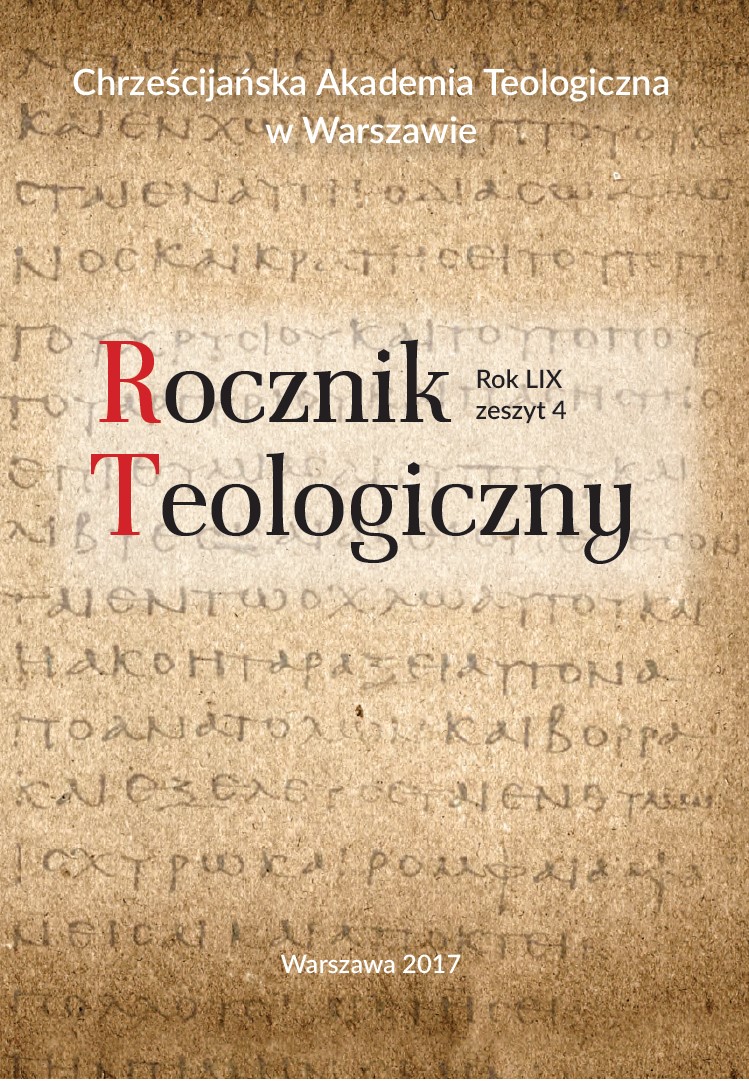Sola scriptura a prawosławne pojmowanie Pisma Świętego i Tradycji Świętej
Sola scriptura and Orthodox Understanding of Holy Scripture and Holy Tradition
Author(s): Wsiewołod KonachSubject(s): Christian Theology and Religion, Theology and Religion, Eastern Orthodoxy, Other Christian Denominations
Published by: Wydawnictwo Naukowe ChAT
Keywords: Holy Scripture; Holy Tradition; Orthodox Church; Church Fathers; Protestantism; sola scriptura; authority; truth
Summary/Abstract: The article entitled “Sola scriptura and Orthodox Understanding of Holy Scripture and Holy Tradition”, presents the understanding of Holy Scripture and Holy Tradition in the Orthodox Church. Contact between Protestants and the Orthodox, established in the second half of the 16th century, fostered theological dialogue which is still conducted within the scope of the Joint Orthodox-Lutheran Commission. Th is Commission has assembled at joint meetings every two years since 1981. One of the controversial issues the commission faces is the understanding of Holy Tradition, as the Lutheran principle of sola scriptura rejects it and gives Holy Scripture indisputable authority. In Orthodox theology, the question of authority does not play a great role and is above all not conceived in a legal sense. Th e Church is a Human-Divine reality, a “new creation”, and a refl ection of the unity of the Holy Trinity. As such, the truth is found there, but it is not contained in any particular carrier of “authority”, but rather appears in various forms of the life of the Church. In the Orthodox understanding, God reveals Himself in Holy Scripture and Holy Tradition. Th ese realities do not exclude each other, are not contradictory, and neither do they diff er in importance. Th e Church has the truth handed down through the Apostles, and it can be preached while not being limited to that which is written in the Holy Scriptures. Scripture is only a part of the life of the Church, one of the manifestations of the Holy Spirit. Scripture is given particular honour; however, it does not possess absolute authority. Holy Scripture is not above the Church, because it lives and is understood within the Church. Th e Church fi nds itself in a mutual relation with Holy Tradition, which Vladimir Lossky describes as the life of the Holy Spirit in the Church, life that communicates to every member of the Body of Christ the possibility of hearing, accepting and knowing the Truth in its authentic light, and not in the natural light of human reason. Holy Tradition is expressed in such forms as Holy Scripture, the teachings of the Holy Fathers, the decisions of the ecumenical and local councils, the Divine Liturgy, iconography and architecture. Truth is expressed in the Church in various forms: written, oral, illustrative and symbolic, however, Tradition connects within itself all of these forms in a unique manner and enables man to accept the truth. It does not impose on the human conscience any formal guarantees of the correctness of faith, but rather provides the opportunity to see the hidden witness of authentic faith. Orthodox theology perceives the life and experience of the Church, in other words Tradition as its theological source. Holy Scripture is the main form of expression of Tradition, which in turn performs the function of the hermeneutical principle in the contemporary interpretation of Scripture. Th eology does not confi ne itself to Scripture, the writings of the Holy Fathers and other sources, but draws its knowledge from the hidden life of the Church in the Holy Spirit, the life directed towards fulfi lment in the Kingdom of God (cf. Eph. 3:17-19). The Orthodox understanding of Holy Scripture and Holy Tradition radically diff ers from the Lutheran principle of sola scriptura.
Journal: Rocznik Teologiczny
- Issue Year: 59/2017
- Issue No: 4
- Page Range: 835-846
- Page Count: 12
- Language: Polish

